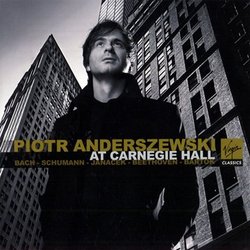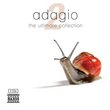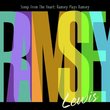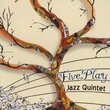| All Artists: Recorded Sound, Johann Sebastian Bach, Robert Schumann, Leos Janacek, Ludwig van Beethoven, Bela Bartok, Piotr Anderszewski Title: Piotr Anderszewski at Carnegie Hall Members Wishing: 1 Total Copies: 0 Label: Virgin Classics Original Release Date: 1/1/2009 Re-Release Date: 6/2/2009 Genres: Special Interest, Classical Styles: Chamber Music, Forms & Genres, Fantasies, Sonatas, Suites, Historical Periods, Classical (c.1770-1830), Instruments, Keyboard Number of Discs: 2 SwapaCD Credits: 2 UPCs: 400000015750, 5099926729121 |
Search - Recorded Sound, Johann Sebastian Bach, Robert Schumann :: Piotr Anderszewski at Carnegie Hall
 | Recorded Sound, Johann Sebastian Bach, Robert Schumann Piotr Anderszewski at Carnegie Hall Genres: Special Interest, Classical
|
Larger Image |
CD DetailsSimilar CDs |
CD ReviewsGood variety of music in Anderszewski's trademark style Erik Ketzan | Orbis Tertius | 06/17/2009 (4 out of 5 stars) "Piotr Anderszewski is a Polish/Hungarian pianist with an unmistakable style at the piano, characterized by very quick changes between loud and soft. One moment he's playing a piece like a lullaby, then BANG BANG BANG, then quickly back to pianissimo. It's sometimes gentle, often muscular, and always clear and crisp. This unique style allows him to breathe fresh life into familiar works. First up is Bach's Partita #2, which does not appear on his earlier Bach disc, Bach: Partitas Nos. 1, 3, 6. It sounds great, in part because it's a Bach we haven't heard before. Unlike most Bach interpretators of the past few decades who simply sidestep or ignore the long shadow that Glenn Gould has cast, Anderszewski seems to take some lessons from Gould. His Bach is often as crisp and clean as Gould's, but nowhere near as severe. There's more pedal, more color, and if these are, indeed, traces of Gould, Anderszewski incorporates them judiciously. The Partita's capriccio, especially, sparkles. Anderszewski's version of "Faschingsschwank aus Wien" sounds how someone acquainted with his style would expect. Another reviewer may be able to chime in on how it compares with other recordings by the greats: Ashkenazy, Richter, etc. Janacek's "In the Mists" may be the highlight of the recital, in part because it's not as well-known as the Bach and Beethoven. It sounds Debussy-esque, which is just about all the intelligent commentary I am able to make on the piece. Anderszewski has recorded lots of Beethoven, including the Piano Concerto No. 1 and Bagatelles and Diabelli Variations. His Diabelli was even filmed as a documentary by the great musical filmmaker Bruno Monsaingeon. The Beethoven sonata here, Sonata 31, Opus 110, is also available on Anderszewski's Bach/Beethoven/Webern disc. Continuing his commitment to the music of his roots, Central and Eastern Europe, Anderszewski closes the recital with an encore of Bala Bartok's "Three Hungarian Folksongs from the Csik District." It's another gem of the disc, as melodious, introspective, plain and complex as the folk melodies that run through it. In sum, a great variety of music from one the best pianists alive, including lots you probably haven't heard before. According to a review of the recital in the New York Times, Anderszewski performed two additional encores, the Prelude from Bach's English Suite No. 6 and the Adagio from Mozart's Sonata in C minor, but these are not included here. As a final note on the sound quality, the recording itself is excellent. Except for the applause at the beginning and end of some tracks, the tracks are largely free of the coughs, shuffles and noises that often plague live piano recordings. If you listen very closely on good headphones, you can hear them, but it's kept at a low level that makes you feel you're there in the audience, rather than distracting you from the performance." The greatest pianist of his generation? Come and listen. Santa Fe Listener | Santa Fe, NM USA | 09/04/2009 (5 out of 5 stars) "Piotr Anderszewski has established himself in the forefront of pianists in his generation. This recital continues his string of fascinating CDs. What sets it apart is how realistically the tone of an Anderszewski recital program has been captured -- in particular, I was carried back by his Bach to the mesmerizing playing I heard from him in concert. Anderszewski's ability to color the notes, phrase with impeccable refinement, and find a flowing logic at all times is remarkable -- his touch alone would be reason to be captivated. His Schumann is new to me, but here is another composer whose music is a test in touch and voicing just as much as Bach is, only in a Romantic idiom. This version of Faschingsschwank aus Wien (a work in the vein of Carnaval but much less played) isn't as passionate or aggressively attacked as Richter's, but that can be a good thing. Richter can verge on hectoring in his fierceness, and the other great name I associate with the piece, Michelangeli, can be the opposite, cool and aloof. Anderszewski manages to be strong, rhapsodic, and fully engaged without going to extremes. This combination of spontaneity and power is thrilling.
The pianist is of Polish-Hungarian extraction but also spent time in the U.S. as a student. He tends to include music by Szymanowski, Chopin, Janacek, and Bartok in his programs, I believe. Here, Janacek's four-part "In the Mists" is played with the freedom and rhapsodic poetry of Chopin and the gossamer delicacy of Debussy, reminding me how sadly neglected this composer's piano works tend to be, even now. And then there's Beethoven's late Sonata No. 31, Op. 110. Anderszewski has been a devoted player of Beethoven, which he personalizes in directions I'm not always happy with. Here the first movement is given a large helping of rubato and poetic shaping, harking back to the kind of pre-Schnabel romanticism that doesn't altogether appeal to me. Isn't Op. 110 made of sterner stuff a la Richter, Serkin, and Schnabel himself? The short Allegro molto that follows is dramatically characterized, b contrast, although not with Richter's fierce passion. The alternating Arioso and Fuga are the heart of the sonata, though, and Anderszewski proves to be heartrending in his execution of the former, its melancholy song done with astonishing sensitivity and naturalness. The transition to the first fugue is silken, and here the ease and power of the pianist's approach is remarkable. Richter shook the earth more, but Anderszewski makes an equally convincing build-up from quieter beginnings -- with his fleet precision, he wants us to remember the Bach Partita he began with In all, if you are going to buy one piano recital so far this year, here it is, along with Yuja Wang's debut on DG. There's a kind of authority and depth in Anderszewski's playing that brings only a few other pianists like Serkin and Richter to mind. The Carnegie Hall audience is quiet, and the piano is a good one, recorded naturally and not so close that the mechanism is overly miked. (One caveat, however: above moderate volume levels the sound gets hard and glassy.) As if he hadn't already dazzled us, Anderszewski encores with the three Hungarian Folksongs of Bartok, and their relaxed, sad, meandering style is so perfect you feel chills run down your spine." |

 Track Listings (11) - Disc #1
Track Listings (11) - Disc #1



